Workshop
A Path to Soft-Landing Korean Unification
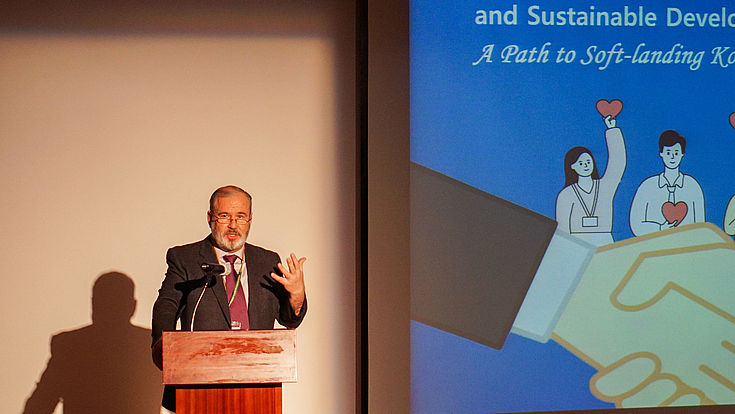
Credit: George Mason University Korea
Before the workshop, HSF Korea headed to Incheon to check briefly for the biodiversity in the area around Songdo, where GMU is located. HSF Korea members observed a variety of birds including the Daurian Redstart, Whimbrel, and Ruddy Shelduck. These birds migrate freely along the Korean Peninsula and in Northeast Asia and are therefore are considered as a symbol for peace in the region.
For the opening of the workshop, Dr. Roland Wilson, professor at George Mason University Korea, emphasized the purpose of the workshop which can concur and address avoidable issues and let us learn from different perspectives. He also stated that the workshop shows the development of peace and cooperation for not only Korea but in the greater East Asian region as well. With this remark, the workshop titled “A Conflict Analysis and Resolution Approach to International Cooperation and Sustainable Development: A Path to Soft-landing Korea Unification” started.
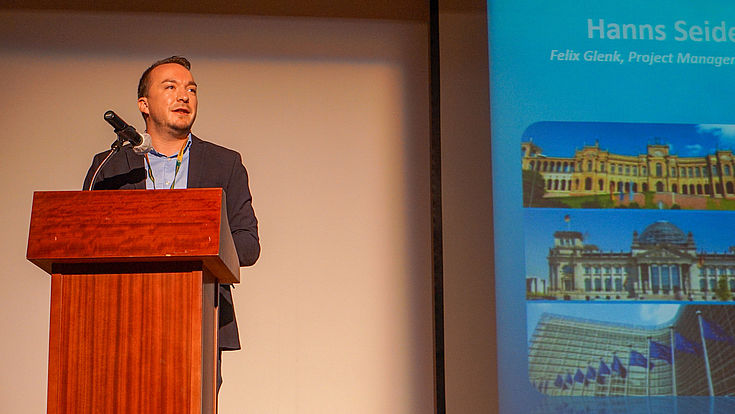
Felix Glenk, Project Manager of HSF Korea, was the first to start the workshop explaining the work of HSF Korea regarding the environment and endangered species protection in DPRK. HSF Korea focuses on the DMZ where wildlife flourishes, observing and researching migratory birds and preserved wetlands in order to find out more about local biodiversity and how sustainable development may be achieved by preserving nature. Another focus of HSF Korea are lessons from the reunification process of Germany and the current status on the Korean Peninsula. Mr. Glenk stressed HSF Korea’s ongoing connection with DPRK as partners with collaborated projects on environmental conservation. The projects act as a connecting tool between the two Koreas and North East Asia regarding bird protection.
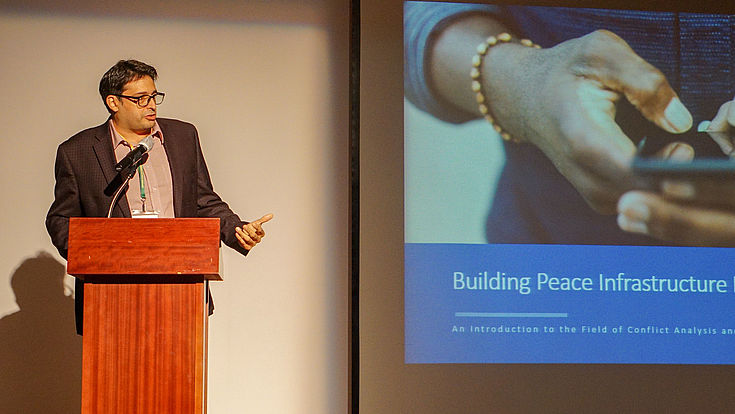
Credit: George Mason University Korea
Following HSF Korea’s introduction, Dr. Arthur Romano, Assistant professor at George Mason University Korea, gave a presentation about conflict analysis and resolution theories as well as its history and applications. Dr. Romano mentioned that the public perception on conflicts is mostly negative and that this cognitive bias makes people avoid conflict, while on its basics, conflicts are naturally occurring when different perspectives and opinions collide. He then accentuated the importance of peace education as it can build a positive infrastructure in the future. We would have to “look inside the volcano” to confront existing points of separation that cause conflict.
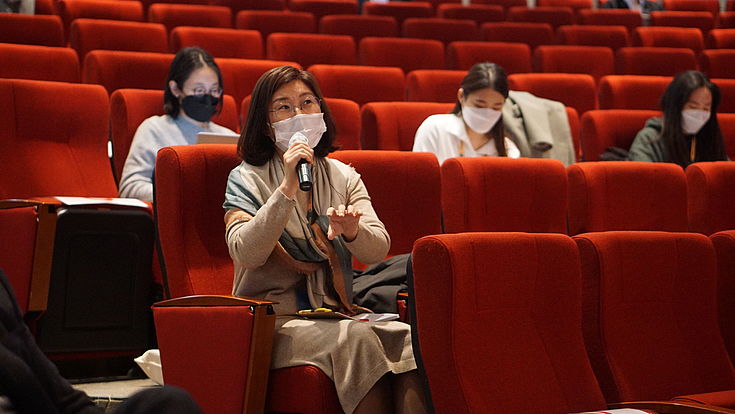
Credit: George Mason University Korea
After the two presentations, a Q&A session was held to engage with the audience. Questions and feedback from the audience flourished and active discussions were made. Dr. Soyong Kwon, professor at George Mason University, said that she found the down to top approach fascinating and that German ideas about civil education were interesting and adaptable. Scholars in the Conflict Resolution field agreed that the young generation should have more of an open mind when it comes to civil education to overcome perspectives of ingrained bias.
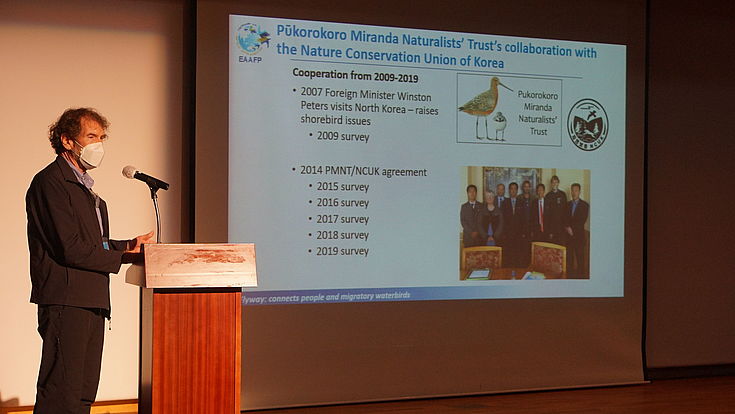
Credit: George Mason University Korea
The next presentation was given by Doug Watkins, Chief Executive of East Asian-Australasian Flyway Partnership (EAAFP), about EAAFP’s projects and future initiatives. Along with their partners, including HSF, EAAFP works on conserving migratory birds and their habitats in Northeast Asia, but also in the DPRK and the RoK. EAAFP mainly officiate training workshops and joint survey on wetland management, bird identification and monitoring. Together with partners, more international cooperation with DPRK was achieved, i.e. within the Ramsar Convention on Wetlands.
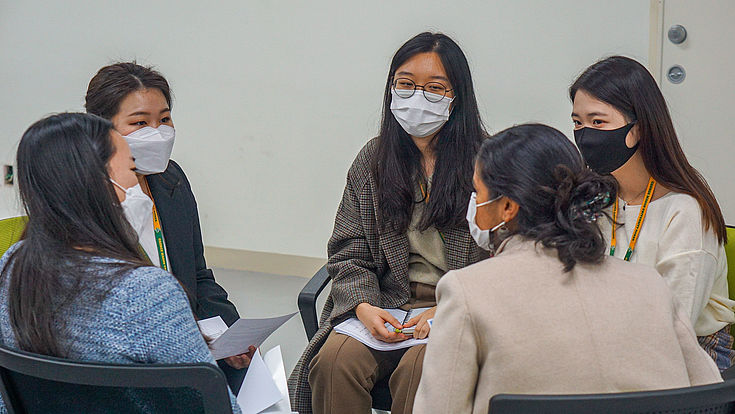
Credit: George Mason University Korea
In the final session of the workshop, participants were divided into three groups to discuss the strengths and weaknesses of the peace education workshop and its content. As NGOs, professors, representatives, and scholars with the common goal of peaceful reunification and conflict resolution, the participants were able to contribute to the global peace building process through the workshop. Organizations and individuals working at different levels of the pyramid in society came together and learned lessons from different histories, cultures, and viewpoints. Under the same purpose, the participants recognized the need for exchange in a polarized society stressing that international cooperation and sustainable development are essential to promote peace.
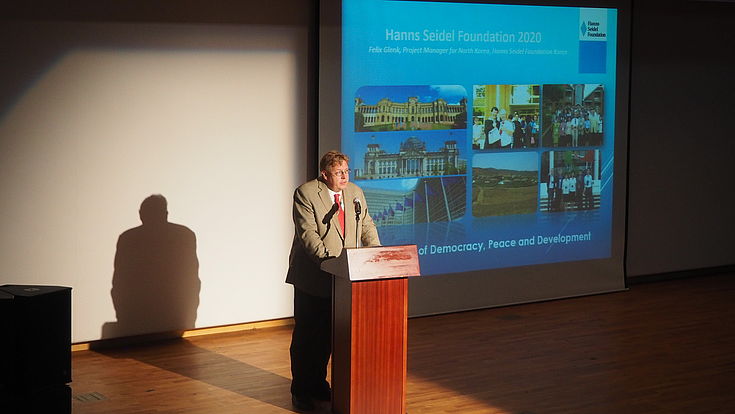
As Dr. Wilson stated, “We are here not to merely work in parallel, but to assist and collaborate as it is only through these diverse efforts that real change can be made.” From different perspectives, many found the workshop interesting and eye-opening to share opinions and interface with other organizations. Some hoped for a wider range of speakers and more discussions on figuring out ways to build peace activities. Participants further agreed that organizations should strengthen each other by collaborating in unison. The closing remark included sharing takeaways about the workshop and planning for future conferences.
On November 11th, Hanns Seidel Foundation Korea (HSF Korea) was featured in George Mason University Provost’s Newsletter about the conflict resolution workshop.
To see photos of the event, click on the following link.
https://www.flickr.com/…/masonkorea/albums/72157716825751416
